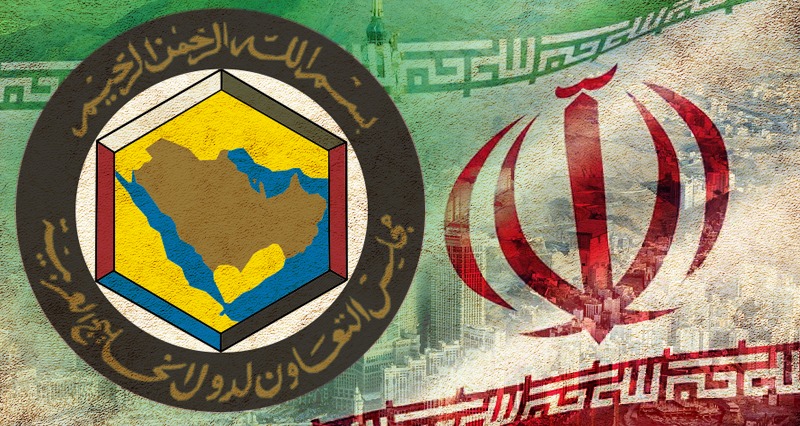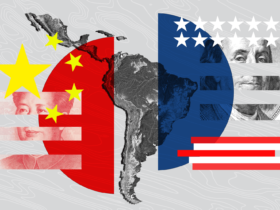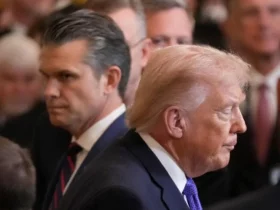Saudi Foreign Ministry demands that the world community take tough stance on Iran and prevent it from ‘spreading chaos’.
Adel Al-Jubeir, Saudi Arabia’s Foreign Minister said Iran could eliminate the risks of a war in the region by observing international law, stopping interference in the internal affairs of regional countries, dropping support of terrorist groupings, and abandoning its nuclear/missile programs.
Saudi Arabia’s rhetoric towards Iran has always been sharply-worded, and the recent incident with tankers in the Persian Gulf made Riyadh even more rancorous against Tehran. At Washington’s behest, the latter was accused of the attack in the absence of any evidence or investigation.
On May 11, four oil tankers became targets of an assault in the territorial waters of the UAE near the port of Fujairah. Two of them belonged to the Saudi oil corporation Aramco, another taker was registered in the UAE and one more waved the Norwegian flag. The situation was highly complicated, as controversial information on damage to the vessels and explosions on them kept trickling from different sources.
No one was killed or wounded and there were no leaks of hazardous liquids in the wake of the incident, which produced a resounding international effect, however. Meanwhile, the U.S. came up with accusations against ‘Iran and its proxies’.
The Saudis did not keep silent either. Minister Al-Jubeir spoke about the Iranian threat as he charged Iran with destabilizing the situation in the region and attacking the Saudi tankers in the UAE. He said Iran had been threatening global economic interests in a bid to block international maritime routes and had conducted terrorist operations in Saudi Arabia and the region.
Al-Jubeir said along with it the kingdom was prepared to do everything in their power for averting the war but would respond with “all strength and determination” if the opposite side chose to start it.
Minister of State @AdelAljubeir on the oil tanker attacks pic.twitter.com/0xLq4WvThw
— Foreign Ministry ???????? (@KSAmofaEN) May 19, 2019
The spiraling of the situation did not stop with the vehement calls. Saudi King Salman bin Abdulaziz Al Saud made an urgent statement on the convocation of emergency summits of the Arab League and the Gulf Cooperation Council, which most surprisingly would be held in no other place than Mecca on May 30.
Forecast
Iranian political scientist Mani Mehrabi, who is a member of the academic board of the Research Institute of International Relations (IrThinktank), believes that struggle with the ‘Iranian threat’ will become the motto of the summit in Mecca. Riyadh will be trying hard to trick its GCC fellow-members into maximum openness for Washington in what concerns the latter’s actions against Tehran, including the military scenarios.
Specifically, the expert said:
“Regional contention between Tehran and Riyadh continues over many long years in the economy, politics and security and today it has reached the peak since 2014. Both countries have tried to use any opportunity for embarrassing each other. Riyadh uses the tensions between Washington and Tehran as a handy instrument in a bid to accuse Iran of attacks on its tankers near Fujairah, to put together a serried anti-Iranian front and to make Donald Trump react to the situation by wielding military and economic impact on Iran.”
Still there is a chance that some member-states of the GCC will stay away from direct confrontation with Iran and will not support the ‘big brothers’ – the Saudis – in absolutely everything. Some Arab states have begun to treasure trade and economic relations with Iran and the support it gave to them in times of trouble. Take, for instance, Qatar that got a lifeline from non-Arab countries, Turkey and Iran, during the blockade organized by the fraternal Saudi Arabia, Bahrain and the UAE. The Iranians dispatched several jets full of foodstuffs to Qatar after the Saudis had sealed off the land border with Qatar, across which the Qataris had been getting 40 percent of their foodstuffs. Also, Qatar and Iran share a large gas deposit and they divide the reserves of this vital and lucrative fuel quite comfortably, without contradictions and with mutual benefits. In the light of it, there is a high probability that Qatar will abstain from Saudi Arabia’s backstage scheming against Tehran.
The #QatarBlockade one year after. Who cut off ties? Who intensified relations? Winners and losers. All in this @MenaraH2020 infographic. pic.twitter.com/WWLYla3MT7
— Eduard Soler Lecha (@solerlecha) June 6, 2018
Mani Mehrabi said Oman might also take on the role of a good will ambassador in the Arab bloc. He went on saying,
“Qatar has good relations with Iran right now and Oman is eyeing the role of a mediator in resolution of regional disputes. Oman is known in this respect as the Switzerland of the Middle East. On the other hand, Saudi Arabia, the UAE and Bahrain are opposing Iran directly. Sadly enough, Kuwait has followed the Saudis in recent years. That is why Iran can hope only for support from Qatar and for diplomacy and assistance by Oman”.
The biggest danger to Iran coming from some of the GCC member-states stems from the presence of NATO and U.S. military bases there, not from the severing of diplomatic or trade relations. And who will be ready to join a U.S.-led military scenario against Iran?
“The U.S. has military bases in each member-state of the GCC but Qatar and Oman’s stance and conditions differ in comparison with other members of the association. The UAE will not want to get entangled in an immediate armed confrontation with Iran out of economic considerations alone, since the Iranian businesses own more than $ 300 billion there. Saudi Arabia has also shown in recent years its reluctance to get enmeshed in military operations against Iran despite innumerable contradictions with it because the Saudis will drown then in a sweeping proxy war with Iran in Yemen. Simultaneously, one can expect that Bahrain and Kuwait will allow the Americans to deploy U.S. troops in their countries for a standoff with Iran, since the U.S. Fifth Fleet, the Isa air base in Bahrain, the Sheikh Ahmad air base in Kuwait, and the Camp Patriot naval base are the biggest U.S. military facilities in the Middle East,” Mehrabi said.
In addition to it, the U.S. Central Command (CENTCOM) set up a permanent platform for full-spectrum operations in 27 countries of the region in Kuwait in 2008. That is why all the stakes suggest that Bahrain and Kuwait will become the key players in the Arab Gambit against Iran.

















Leave a Reply